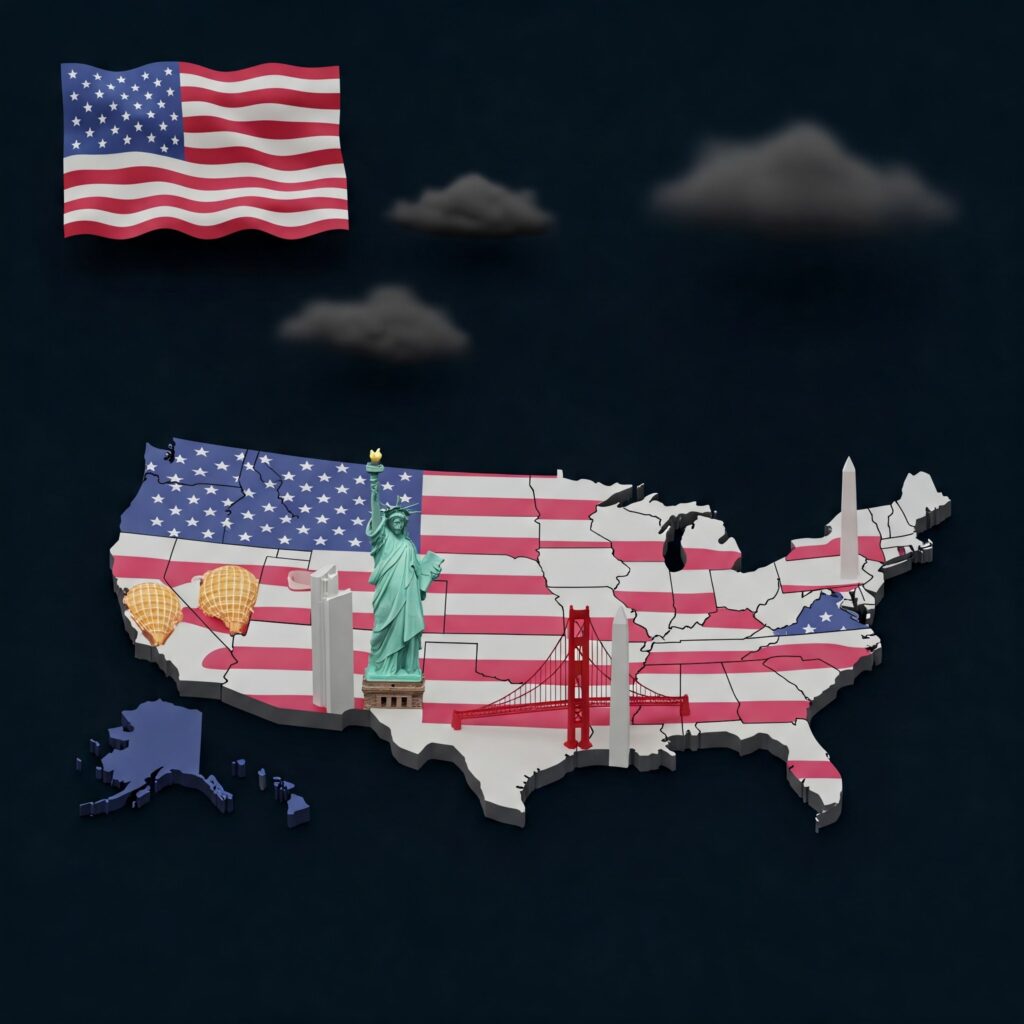
F-1 Visa Revoked”: Why US Is Targeting Activist Students
Introduction
The recent revocation of F-1 visas for hundreds of international students in the United States has sparked widespread concern and debate. This unprecedented move, announced by U.S. Secretary of State Marco Rubio, targets students allegedly involved in campus activism. The crackdown has raised questions about free speech, immigration policies, and the future of international education in the U.S. For students and universities alike, the implications are far-reaching, affecting academic careers, personal lives, and the global reputation of American higher education.
What is the F-1 Visa?
The F-1 visa is a non-immigrant visa that allows international students to pursue academic studies in the United States. It is a cornerstone of the U.S. education system, enabling over a million students annually to enroll in universities, colleges, and other institutions.
Importance of F-1 Visas
- F-1 visa holders contribute significantly to the U.S. economy, generating billions in revenue through tuition and living expenses.
- They bring cultural diversity and intellectual vigor to American campuses.
- According to the latest Open Doors report, over 1.1 million international students were enrolled in the U.S. during the 2023-24 academic year, with 331,000 from India alone.
The Recent Crackdown
Marco Rubio’s Announcement
In a press conference, Marco Rubio revealed that over 300 F-1 visas had been revoked, with more cases under review. He described the targeted students as “lunatics” disrupting campus environments.
Reasons for the Crackdown
- Alleged involvement in pro-Palestinian activism.
- Participation in campus protests deemed disruptive.
- Sharing or liking social media posts critical of U.S. policies.
Notable Cases
- Rumeysa Ozturk, a Turkish doctoral student at Tufts University, was detained for her activism.
- Mahmoud Khalil, a Palestinian graduate student at Columbia University, remains in detention for his pro-Palestinian stance.
Read more about the crackdown here.
Legal and Ethical Concerns
Free Speech Implications
The crackdown has been criticized for undermining the First Amendment rights of international students. Advocacy groups argue that peaceful activism should not lead to deportation.
Legal Basis for Revocations
The U.S. government cites a Cold War-era provision allowing visa revocations for activities deemed harmful to foreign policy. Critics argue this law is being misused to suppress dissent.
Ethical Concerns
- Targeting non-violent activism sets a dangerous precedent.
- The move could deter future international students from choosing the U.S. as a study destination.
Learn more about the legal challenges here.
Social Media and Visa Scrutiny
Monitoring Online Activity
The U.S. Department of State has intensified its scrutiny of social media activity. Students have been targeted for merely liking or sharing posts critical of U.S. policies.
Broader Implications
- Raises concerns about digital privacy.
- Sets a precedent for using online activity as grounds for visa decisions.
Explore the role of social media in visa revocations.
Impact on International Students
Fear and Uncertainty
The crackdown has created a climate of fear among international students, many of whom now feel unsafe expressing their opinions.
Academic and Personal Consequences
- Interrupted studies and research projects.
- Emotional and financial stress for students and their families.
Broader Impact on U.S. Universities
- Potential decline in international student enrollment.
- Damage to the global reputation of American higher education.
Read more about the impact on students.
Political Context
Trump Administration’s Policies
The crackdown aligns with broader immigration policies under the Trump administration, which have focused on restricting entry and increasing deportations.
Connection to Anti-Terrorism Goals
Officials claim the measures are necessary to combat terrorism and protect national security. Critics argue this justification is overly broad and lacks transparency.
Learn more about the political context here.
Responses and Backlash
Protests and Legal Challenges
- Advocacy groups like the ACLU have filed lawsuits against the government.
- Students and universities are organizing protests to demand policy changes.
International Reactions
Countries like India, Turkey, and Iran have expressed concern over the treatment of their citizens.
Calls for Reform
There is growing pressure on the U.S. government to revise its immigration policies and protect the rights of international students.
Read about the global backlash here.
What’s Next?
Future of F-1 Visa Policies
The current administration is likely to continue its strict approach, but advocacy efforts could lead to reforms.
Recommendations for Students
- Be cautious about online activity.
- Seek legal advice if targeted.
- Stay informed about policy changes.
Explore potential policy changes here.
FAQs
1. Why are F-1 visas being revoked?
F-1 visas are being revoked for alleged involvement in campus activism, including protests and social media activity critical of U.S. policies.
2. Who is affected by the crackdown?
International students from various countries, including India, Turkey, and Iran, have been targeted.
3. What legal basis is used for these actions?
The U.S. government cites a Cold War-era provision allowing visa revocations for activities deemed harmful to foreign policy.
4. How can students protect themselves?
Students should avoid controversial online activity, seek legal advice, and stay informed about policy changes.
5. What is the impact on U.S. universities?
The crackdown could lead to a decline in international student enrollment and damage the global reputation of American higher education.
Conclusion
The revocation of F-1 visas for international students has highlighted critical issues surrounding free speech, immigration policies, and the role of activism in academia. While the U.S. government defends its actions as necessary for national security, critics argue that these measures undermine fundamental rights and tarnish the country’s reputation as a global leader in education. Moving forward, it is essential for policymakers, universities, and advocacy groups to work together to ensure that international students are treated fairly and that their contributions to American society are recognized and valued.
Explore Other Articles:
- Sweden Job Seeker Visa – How to Apply
- Portugal’s Job Seeker Visa – What You Need to Know
- Germany EU Blue Card – Benefits and Requirements
Discover more from Find Sponsored Jobs
Subscribe to get the latest posts sent to your email.





